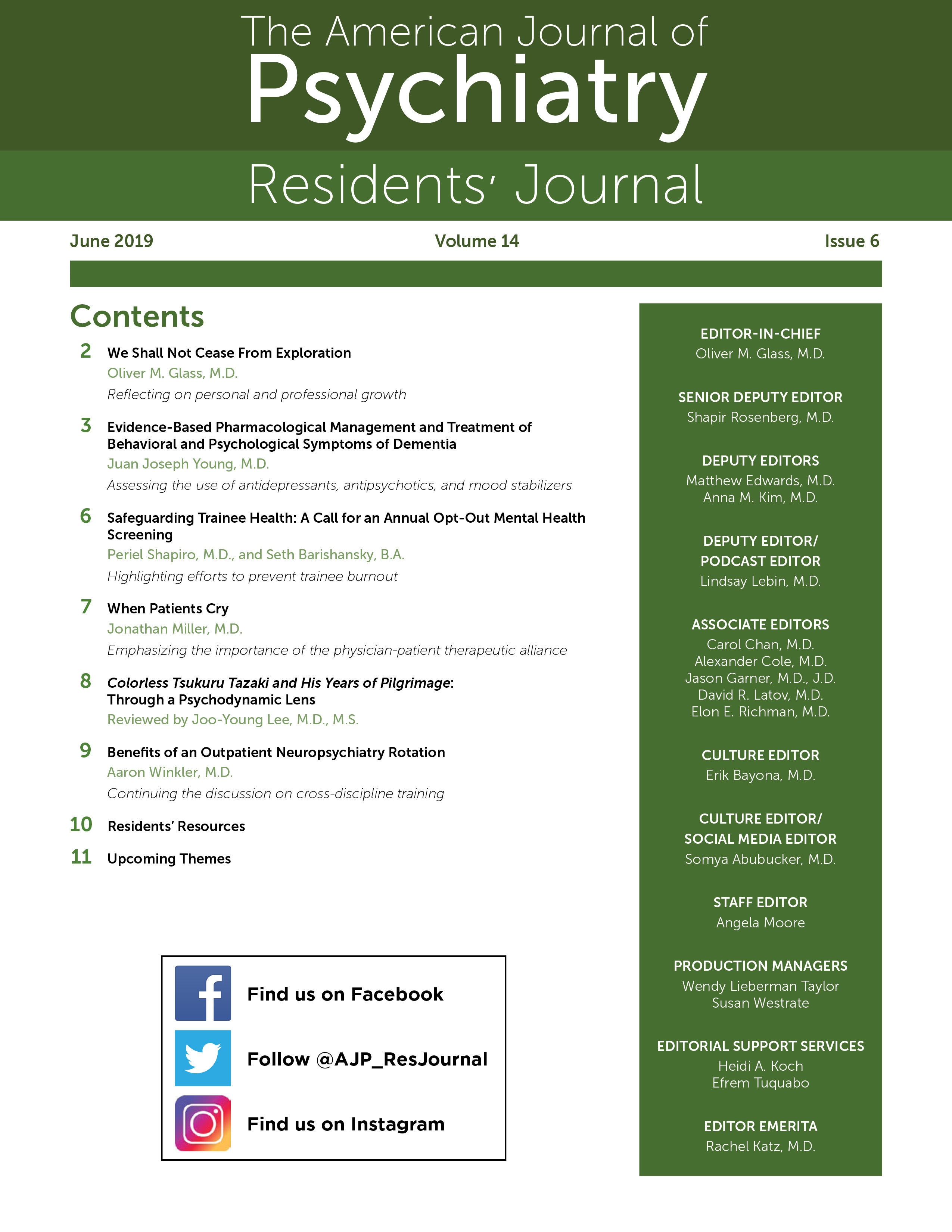There is an alarmingly high prevalence of depression among medical trainees. A 2016 meta-analysis of data from 122,356 medical students found that nearly a third were depressed (
1). Another meta-analysis of data from 17,560 residents, published in 2015, found a similarly high rate of depression, with a prevalence estimate of 28.8% (
2).
In 2017, the Accreditation Council for Graduate Medical Education (ACGME) instituted a requirement that training programs provide a "confidential, affordable mental health assessment" (
3). In fulfilling the ACGME mandate, many institutions offer access to university counseling centers or community providers for a mental health evaluation.
Institutions that rely on self-referral to establish access to care are likely to miss many individuals in need. In one survey of house staff at Northwestern University, 110 residents and fellows felt that they would benefit from mental health care (
4). Yet fewer than half of those trainees sought an evaluation. In another survey of 183 medical students at Yale University, 24.5% reported increased mental health needs during medical school, but fewer than half of those students increased their help-seeking behaviors (
5). Many trainees may not self-refer because of stigma, manifesting as a fear of appearing weak or of facing professional consequences if discovered seeking care. Time and cost are also cited as barriers; programs may require that trainees seek an evaluation during their free time and pay out of pocket for services (
4,
5).
An annual opt-out mental health screening, included among other annual health care interventions, may mitigate issues associated with a self-referral system. By providing access to a no-cost evaluation in the same location and contiguous with workday time slots appointed for general health care needs, such as the influenza vaccine and tuberculin test, trainees will not have to sacrifice their limited personal time and funds in order to obtain an evaluation. An annual evaluation for every trainee would frame mental health care as a routine matter of health maintenance for all future physicians. A positive screen in the mainstreaming context of routine health maintenance may spur trainees to accept help before a crisis occurs.
Mental health is a prerequisite for optimal medical training. An annual mental health assessment for trainees, embedded among well-established trainee health care requirements, would serve both to minimize the barriers associated with a self-referral system and to reduce the stigma associated with mental health care.
